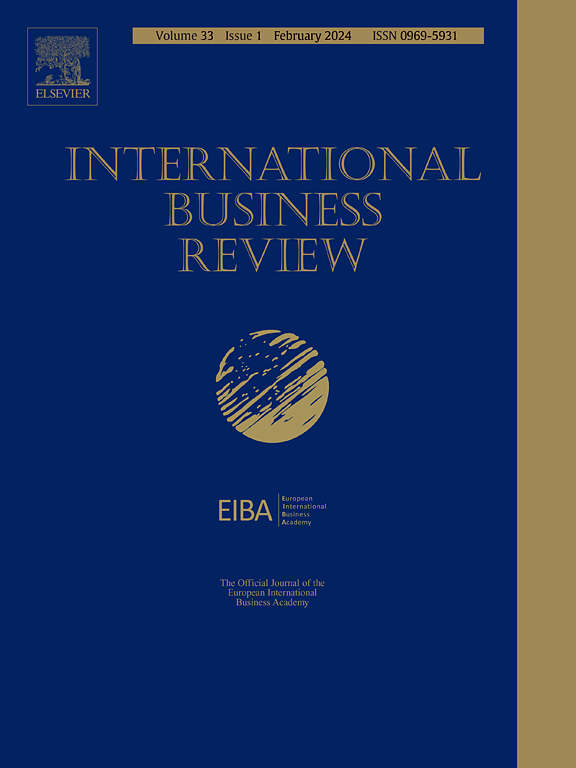进出口关系中的权力动力学、合作与绩效:伙伴不相容与情绪调节的调节作用
IF 6.1
1区 管理学
Q1 BUSINESS
引用次数: 0
摘要
利用权力依赖理论和情绪调节理论,我们考察了出口商和进口商之间关系的权力动力学。从262个希腊出口商收集的数据证实,出口商对进口买方的依赖有利于后者对前者行使高水平的非强制性权力和强制性权力。然而,在伙伴不相容程度较高的情况下,这种依赖对进口商行使非强制性权力的影响较弱,但在强制性权力的情况下则较强。后来发现,进口商对出口商行使非强制性权力可以加强组织间合作,而行使强制性权力则相反。然而,出口商调节情绪的能力增强了非强制性权力对组织间合作的积极影响,而减少了强制性权力对组织间合作的消极影响。最后,证实了组织间合作可以改善关系绩效。本文章由计算机程序翻译,如有差异,请以英文原文为准。
Power dynamics, cooperation, and performance in exporter-importer relationships: The moderating role of partner incompatibility and emotion regulation
Drawing on Power-Dependence theory and Emotion Regulation theory, we examine the power dynamics of the relationship between exporters and importers. Data collected from 262 Greek exporters confirmed that the exporter’s dependence on the import buyer is conducive for the latter to exercise high levels of both non-coercive power and coercive power on the former. However, at higher levels of partner incompatibility, the impact of this dependence on importer’s exercised noncoercive power was weaker, but stronger in the case of coercive power. The importer’s exercise of non-coercive power on the exporter was subsequently found to enhance inter-organizational cooperation, whereas the opposite was true when exercising coercive power. However, the exporter’s ability to regulate emotions strengthened the positive impact of noncoercive power on inter-organizational cooperation but reduced the negative effect that coercive power has on it. Finally, inter-organizational cooperation was confirmed to improve relational performance.
求助全文
通过发布文献求助,成功后即可免费获取论文全文。
去求助
来源期刊

International Business Review
BUSINESS-
CiteScore
14.10
自引率
6.90%
发文量
95
审稿时长
62 days
期刊介绍:
The International Business Review (IBR) stands as a premier international journal within the realm of international business and proudly serves as the official publication of the European International Business Academy (EIBA). This esteemed journal publishes original and insightful papers addressing the theory and practice of international business, encompassing a broad spectrum of topics such as firms' internationalization strategies, cross-border management of operations, and comparative studies of business environments across different countries. In essence, IBR is dedicated to disseminating research that informs the international operations of firms, whether they are SMEs or large MNEs, and guides the actions of policymakers in both home and host countries. The journal warmly welcomes conceptual papers, empirical studies, and review articles, fostering contributions from various disciplines including strategy, finance, management, marketing, economics, HRM, and organizational studies. IBR embraces methodological diversity, with equal openness to papers utilizing quantitative, qualitative, or mixed-method approaches.
 求助内容:
求助内容: 应助结果提醒方式:
应助结果提醒方式:


